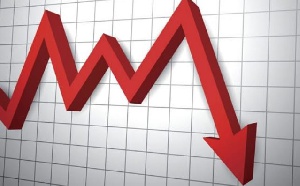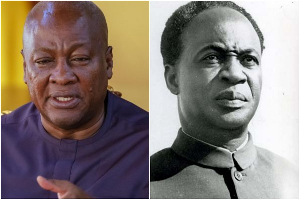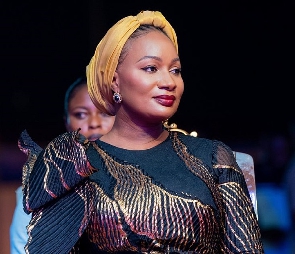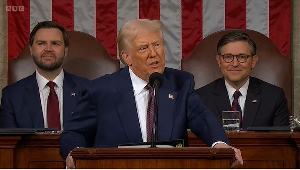The Economist Intelligence Unit (EIU) has predicted that Ghana’s economic growth by the end of 2019 will fall short by 0.3% of the 6.8% Gross Domestic Product (GDP) recorded in 2018 by the Ghana Statistical Service (GSS).
EIU’s country report on Ghana, which was released on 13 May 2019, stated a 6.3% year-on-year growth and predicted a 6.5% growth for 2019.
However, compared to the country’s statistical figures, the report suggests a shrink in the economy by the close of 2019.
A report by Bloomberg stated that Ghana will see the fastest growth in 2019, according to the International Monetary Fund (IMF). The lender forecast of 8.8 per cent for the producer of cocoa, gold and oil, dwarfs the 6.6 per cent median in a Bloomberg survey.
The EIU attributed its predictions to low-value addition in the agricultural sector and low productivity—which serves to limit wage growth for workers—and price rises moderating consumer sentiment.
“Accordingly, we forecast overall GDP growth of 6.5% in 2019,” the report said.
It said economic growth over the forecast period will be driven predominantly by the hydrocarbons sector, with a continued ramping up of oil and gas production expected.
“However, this oil-driven growth will mask constraints such as low productivity, infrastructure bottlenecks and relatively weak access to credit—elsewhere in the economy. We expect there to be some spillover effects from hydrocarbons—with increases in broader industrial production, infrastructure investment and auxiliary services—but this will be fairly limited.
“In January, Tullow Oil increased the production outlook for Ghana’s Jubilee and Tweneboa Enyenra-Ntomme oilfields for 2019, despite the weak price outlook for the year. The company is looking to generate revenue to service debts built up from costly regional exploration and development work. Outside the oil sector, we expect lending growth to continue to recover from a slump in early 2018, which was caused by a rise in the reserve requirement.
“A stronger banking sector following consolidations will also be in a position to take advantage of improved liquidity conditions following the January 2019 cut in the policy rate, which will support growth in industrial activity. Consumer demand will remain robust during the year, helped by the lower cost of credit, but ultimately constrained by low value added in the agricultural sector—which serves to limit wage growth for workers—and price rises moderating consumer sentiment. Accordingly, we forecast an overall GDP growth of 6.5% in 2019. We expect growth to ease to 5.7% in 2020 as Ghana is affected by weaker global economic conditions—weighing on investment flows into the country—although government and private consumption levels will rise slightly ahead of the election that year”.
In February, Aker Energy announced the discovery of 450m-550m barrels in the Deepwater Tano Cape Three Points block off the coast of Ghana, with potential recoverable reserves of nearly 1bn barrels.
The first oil from the Aker fields is expected by the first quarter of 2021.
EIU said consequently, “growth is expected to average 5.9% in 2021- 23, reflecting the development of these new oil and gas resources boosting output volumes, combined with our expectations for a recovery in global oil prices. In addition, we expect to see stronger non-oil performance as the government’s policy reform efforts to boost the private sector —such as One District, One Factory—start to bear fruit”.
However, the group pointed out that: “Agricultural growth will continue to be hampered by unfavourable prospects for the cocoa sector, reflecting the poor underlying quality of the tree stock? some 40% of Ghana’s cocoa farms are infected with diseases (particularly swollen shoot virus) or have overaged stock, and this will temper growth in yields. Hot, dry weather at the start of the season will also weigh on cocoa output in 2019”.
Business News of Friday, 17 May 2019
Source: classfmonline.com

















